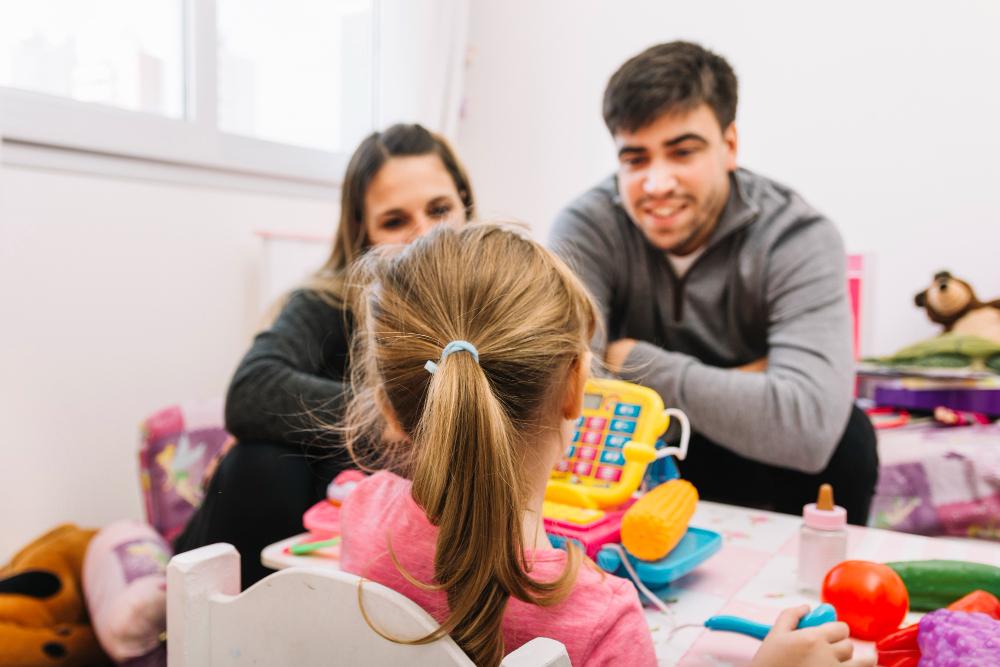That first week of daycare is a big milestone not just for your little one, but for you as a parent. You've spent months preparing, researching, and finally choosing the right place for your child to begin their early learning journey. Still, when drop-off day comes, it's perfectly normal to feel a mix of excitement, pride, and nervousness.
Every parent wants reassurance that their child will feel safe, cared for, and happy. To help you navigate this emotional and practical transition, here's what to expect during your first week at a day care center in Alpharetta and how you and your child can make the adjustment with confidence
The Emotional Side of Starting Daycare
The first week of daycare brings a lot of feelings and that's okay. Many parents describe the experience as bittersweet: pride in seeing their child grow up, mixed with anxiety about leaving them in someone else's care. Children can feel those emotions, and they may show their own through tears, hesitation, or clinginess.
The key is consistency and reassurance. Try to keep goodbyes short but cheerful, letting your child know you'll be back soon. A familiar item like a blanket or favorite toy can bring comfort in a new environment.
Remember, caregivers are trained to help with transitions. Now children adjust within a few days once they realize daycare is full of play, songs, and new friends. For parents, regular photo or message updates from staff can provide peace of mind that your child is safe and content
Preparing for the First Day
Preparation can make those first mornings much smoother. Start by attending any orientation your daycare offers. You'll meet teachers, learn about daily routines, and discuss practical matters such as allergies, nap times, and pickup schedules.
Before the first day, pack essentials like labeled bottles, extra clothes, diapers or pull-ups, and a comfort item. It helps to adjust your home schedule to match the daycare's routine for naps and snacks, the familiarity eases your child's adjustment.
Talk positively with your child about what's coming. Instead of focusing on separation, describe the fun parts: “You'll play with blocks, sing songs, and meet new friends.” When children hear your excitement, they feel more confident about the experience
What Happens During the First Week
Every day of the first week brings new progress.
-
Day 1: Expect a short schedule so your child can explore and meet teachers without becoming overtired. There may be tears, but caregivers know how to comfort and redirect with toys and activities.
-
Day 2–3: Your child begins to recognize faces and routines. They may start engaging in play, even if it's side-by-side rather than fully interactive.
-
Day 4–5: Familiarity takes hold. Drop-offs become quicker, and your child may start waving goodbye eagerly or talking about friends and songs at home.
For parents, the first week is about trust learning to let go a little while watching your child grow more confident each day
Inside the Classroom: What to Expect
Inside a well-run daycare, learning happens through play. Teachers guide children through age-appropriate activities like storytelling, art, sensory play, and outdoor exploration.
Daily routines include structured play, rest time, snack breaks, and free play that helps build independence and social skills. You'll also notice early learning woven into every moment
counting blocks, identifying colors, or singing about the alphabet.
These experiences lay the groundwork for future academic and social success. As your child grows, they'll transition naturally into new environments, whether that's traditional kindergarten, pre-kindergarten homeschool programs , or a community preschool setting
Building Relationships with Teachers and Staff
Strong communication is one of the best indicators of a great daycare. Teachers should greet you warmly, share updates at pick-up, and welcome your questions about progress or routines.
Take time to introduce yourself and share small details about your child's personality, preferences, or comfort items it helps caregivers connect on a deeper level.
Many centers use daily sheets or mobile apps to share photos, notes, and nap schedules. These tools keep parents involved while respecting the teachers' busy schedules. Remember, the goal is teamwork you and the caregivers are partners in your child's development, working together to build confidence and curiosity
How to Support Your Child at Home
Consistency is key. Try to maintain similar sleep and meal routines on weekends so your child's internal rhythm stays steady. Ask open-ended questions about their day: "What did you play today?" or "Who did you sit with at lunch?"
Offer encouragement for small milestones, like separating easily at drop-off or helping another child. Avoid overscheduling after daycare; children often need quiet downtime after full, stimulating days.
You can also supplement daycare learning through family activities, reading together, outdoor exploration, or short enrichment classes. For instance, if you have older kids, enrolling them in a before and after school program in Alpharetta can give your younger child a sense of excitement about “big kid” routines and learning
Final Thoughts: Settling In and Looking Ahead
That first week will feel like a whirlwind, but soon daycare will become part of your family's daily rhythm. You'll watch your child develop independence, new friendships, and a love for learning all while gaining confidence in a nurturing environment.
For parents, the reward comes when the drop-off changes from tears to smiles and your child starts running into the classroom, ready for another day of play and discovery.
Choosing the right day care center in Alpharetta isn't just about convenience, it's about finding a place where your child feels safe, loved, and encouraged to explore the world. With a little patience and trust, the first week is only the beginning of an exciting new chapter in your family's story.

